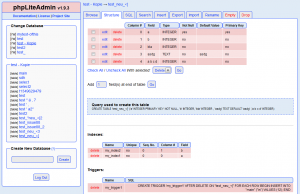Sorry CrazyStat, this time I am two days late. On Saturday, it was CrazyStat’s 7th birthday.
As every year, I want to give a look back at what happened this year, and a look forward on my plans on the future.
Most importantly, the development of CrazyStat got more open, as I had planned. I opened a Sourceforge project for CrazyStat, a forum for discussion and support, and made CrazyStat’s svn publicly available on Sourceforge. So a bugtracker and a FAQ script is still to be opened. I guess I’ll do so this year.
Another great thing that happened: CrazyStat got translated into two more languages: Russian and Portuguese. Together with English, German, Dutch and Danish, CrazyStat is now available in 6 languages. Thanks a lot to all translators for their work! I hope a lot of more languages will come in the future. If you speak another language, please contact me, it is really not so much work to do.
With the release of 1.71 RC1 (which basically is a final version, I won’t release another 1.71), CrazyStat also made some good improvements, although it was mainly a maintenance release.
Looking at my plans I had last year, not every goal has been achieved yet, but some of them have: The release of 1.71, making CrazyStat development more open and blogging more. For version 1.80, I did not find much time this year. But CrazyStat development will continue this year, so stay tuned.
Thanks to all users of CrazyStat. Especially thanks to everybody who donated! If you like CrazyStat, please consider a small donation. Thanks a lot also to those users who gave feedback, requested features and reported bugs. If you do so, please use the forum.
I also joined the development team of phpLiteAdmin, a web-GUI for SQLite-Databases. I think phpLiteAdmin is a very promising project and I will continue my participation in it.
Merry Christmas everybody and a happy new year!
